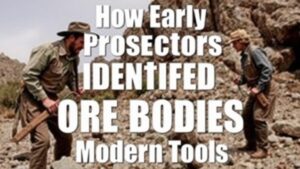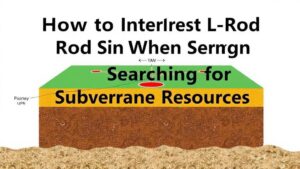Setting Up Contracts for Bulk Mineral Sales to Large Companies
Setting Up Contracts for Bulk Mineral Sales to Large Companies
The sale of bulk minerals to large companies requires meticulous planning and precise execution. This is largely due to the scale and complexity of these transactions, which often involve substantial financial commitments and regulatory considerations. Establishing robust contracts not only safeguards the interests of both parties but also lays a foundation for a successful business relationship. This article explores key aspects of setting up these contracts, including legal considerations, pricing strategies, and relationship management.
Understanding the Legal Framework
Before drafting any contract, it is essential to understand the legal framework within which mineral sales operate. This involves navigating multiple layers of legislation, both federal and state. Key legal considerations include:
- Mineral rights ownership – It is crucial to clearly outline who owns the mineral rights. For example, in the United States, the General Mining Act allows private individuals to acquire mineral rights on federal lands, but state laws also govern various aspects of mineral extraction.
- Regulations and permits – Different jurisdictions have specific regulations that may dictate mining practices and required permits, which could impact contract terms.
- Environmental laws – Compliance with local, state, and federal environmental laws is mandatory, ensuring that mining practices do not harm ecosystems.
For example, the case of the Pebble Mine in Alaska illustrates how environmental concerns can halt projects, emphasizing the importance of compliance in contract negotiations.
Pricing and Payment Terms
Pricing structures in mineral sales can vary significantly based on market demand, mineral type, and extraction costs. Companies often employ different pricing models, including:
- Fixed pricing – A set price per ton, which provides predictability but may not reflect fluctuating market values.
- Market-linked pricing – Prices are tied to prevailing market rates, allowing for adjustments in line with market trends, but introducing volatility.
- Sliding scale pricing – This hybrid approach adjusts prices based on predetermined thresholds, providing a balance between stability and market responsiveness.
For example, copper pricing in 2022 was heavily influenced by international supply chain issues and geopolitical tensions, leading many sellers to adopt market-linked pricing to capture higher market valuations.
Terms of Delivery and Logistics
Delivery terms are critical in bulk mineral contracts, outlining who bears the responsibility for transportation and risk during transit. Important factors include:
- Incoterms – Clearly specified delivery terms under Incoterms (International Commercial Terms) can determine responsibility for shipping costs and liability.
- Quality specifications – Contracts must specify the quality of minerals being delivered, including acceptable variances and methods of testing.
A notable case is the contract disputes that arose between Rio Tinto and its buyers over ore quality discrepancies, underscoring the need for clarity in quality specifications.
Dispute Resolution Mechanisms
Given the high stakes involved in bulk mineral sales, having a clear dispute resolution clause is essential. This can include:
- Mediation – A collaborative approach where a neutral third party helps facilitate negotiations.
- Arbitration – A more formal process where disputes are settled by an arbitrator whose decision is binding.
- Jurisdiction – Clearly defining the jurisdiction in which any legal disputes will be settled can prevent complications.
In 2020, a dispute involving a large iron ore supplier highlighted how ambiguous jurisdiction clauses can lead to extended legal battles, demonstrating the necessity for clear terms.
Building Long-Term Relationships
Beyond the contract, establishing trust and communication is vital for long-term partnerships. Strategies include:
- Regular communication – Keeping all stakeholders informed about market conditions, changes in regulations, or operational delays fosters a cooperative atmosphere.
- Joint ventures and collaborations – Exploring partnerships can create additional value and streamline operations.
A compelling example is the partnership between BHP and Japanese trading firms, which has led to mutually beneficial alliances in various mineral projects, illustrating the value of collaboration.
Conclusion
To wrap up, setting up contracts for bulk mineral sales to large companies involves intricate legal considerations, pricing strategies, delivery terms, and relationship management. By ensuring clarity in each of these areas, parties can mitigate risks and foster successful long-term partnerships. It is vital for sellers to be prepared and proactive in addressing potential issues to navigate this complex landscape successfully.
Actionable Takeaways
- Thoroughly understand local and federal laws surrounding mineral rights and environmental regulations before drafting contracts.
- Consider different pricing models that align with market conditions and both parties’ risk tolerances.
- Establish clear delivery and quality terms to prevent misunderstandings.
- Incorporate effective dispute resolution mechanisms to ensure swift conflict resolution.
- Invest in building a long-term relationship with buyers through transparency and collaboration.


